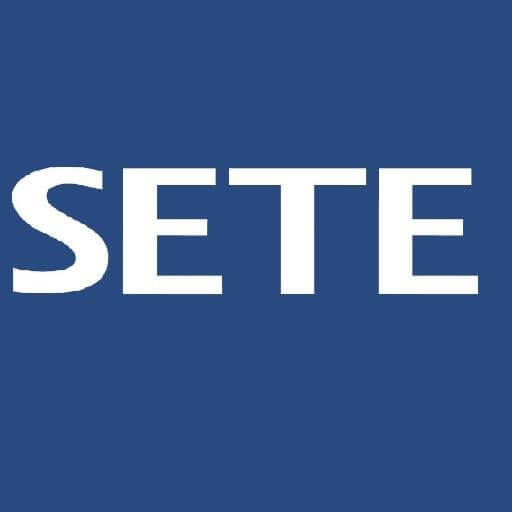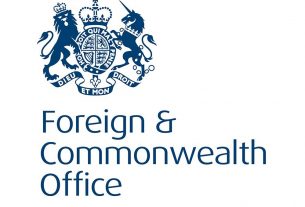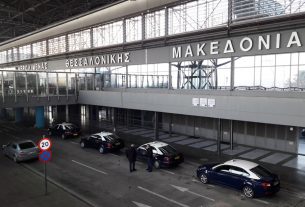SETE has written a letter to the EU according to the Tourism recovery as part for EU’s economic recovery which is addressed at Thierry Breton, European Commissioner of Internal Market, President of EC Tourism Committee and communicated to Margaritis Schinas, Vice-President of the European Commission, Paolo Gentiloni, Commissioner for Economy, Ylva Johanson, Commissioner for Home Affairs, Elisa Ferreira, Commissioner for Cohesion and Reforms, Didier Reynders, Commissioner for Justice and Adina Vălean, Commissioner for Transport.
The letter goes as follows:
Dear Commissioner Breton,
We are honoured to be contacting you on behalf of the European Partnership, the informal cooperation of umbrella tourism federations of the private sector in key European destinations and source markets, namely Bundesverband der Deutschen Tourismuswirtschaft – Germany, SETE (Greek Tourism Confederation) – Greece, FEDERTURISMO CONFINDUSTRIA – Italy and Norwegian Tourism Partners – Norway.
Αs a working group representing “tourism forces” between the North and the South of Europe, we salute and consider of utmost importance the creation of a committee dedicated to tourism, particularly due to the worldwide impact of the COVID-19 pandemic. We are in no doubt, that the lockdowns to address the COVID-19 pandemic will deal a heavy blow to tourism in 2020, however, provided the right measures are taken, we can expect a recovery in 2021 and beyond, consistent with the EU’s vision.
Europe is the world’s No. 1 tourism destination and tourism plays a significant role in the EU economy and society, making its recovery crucial for the EU’s recovery. WTTC estimated travel and tourism’s contribution at 9.7% of European GDP in 2018 and at 9.7% of total employment, the equivalent of 36.7 million jobs, with growth prospects exceeding those of the economy overall. Furthermore, the sector helps to achieve the priorities of the European Commission by providing employment and training for population segments with difficulties in accessing the labour market (young people and women), and by developing the European hinterland and remote islands, where tourism is very often the main or sole source of income.
However, Tourism is not just about the economy. Tourism and travel represent the essence of the European idea, the right and freedom to travel. The privilege of traveling across borders has been one of the biggest and most important achievement for Europeans and is an effective way for improving the understanding between people of different cultures and thus keeping and promoting peace. Lengthy travel restrictions would therefore not only damage the economy in a serious way but would in fact damage the basis of the European spirit.
A precondition for the restart of travel is the elaboration of an EU health and safety protocol for the entire travel and tourism value-added chain, that will be adhered to by all member states. The alternative, i.e. where each country develops its own protocols, as already planned by some member-states, will only lead to a fragmented European market and the increased uncertainty among potential travelers will be a heavy impediment to opening-up travel. It is, therefore, essential that measures should be uniform, realistic and viable, for the tourism industry to restart within 2020, with health checks -on an EU protocol- run in the country of origin to minimize disruption to travel and reduce uncertainty for travelers.
Additional to that, immediate regulatory solutions/ frameworks are necessary (government aid, ad hoc sectoral means for labor, etc.) that will contribute to the ability of businesses to return and contribute to liquidity, further to the structural funds of the new 2021-2027 programme and supplementary to the Recovery Fund that is already being planned.
Additional measures will be necessary to support and speed up the recovery from the second half of 2020 and beyond.
These indicatively include:
- the establishment of an EU framework for service providers in tourism (e.g. airlines, hotels, travel agencies, tour operators etc.) to provide vouchers instead of refunds for bookings cancelled due to the lockdowns, always taking into account consumer rights;
- extended use of the EU structural funds to support the tourism industry, including direct funding of companies involved in the tourism value added chain. These funds should encourage sustainable practices and development of smart / digital systems for the containment of the pandemic and the development of the tourism sector;
- reduction of VAT, if possible to zero, on services and products in the tourism sector throughout 2021.
- a worldwide campaign to re-launch the EU as the world’s No. 1 destination;
We remain at your disposal to further discuss the above and assist the European Commission in developing policies that will speed the recovery of tourism in a way that is sustainable and consistent with the Commission’s priorities and policies.




